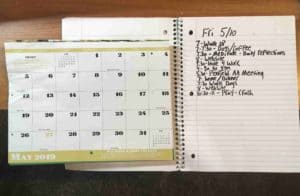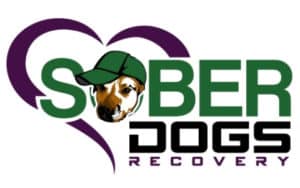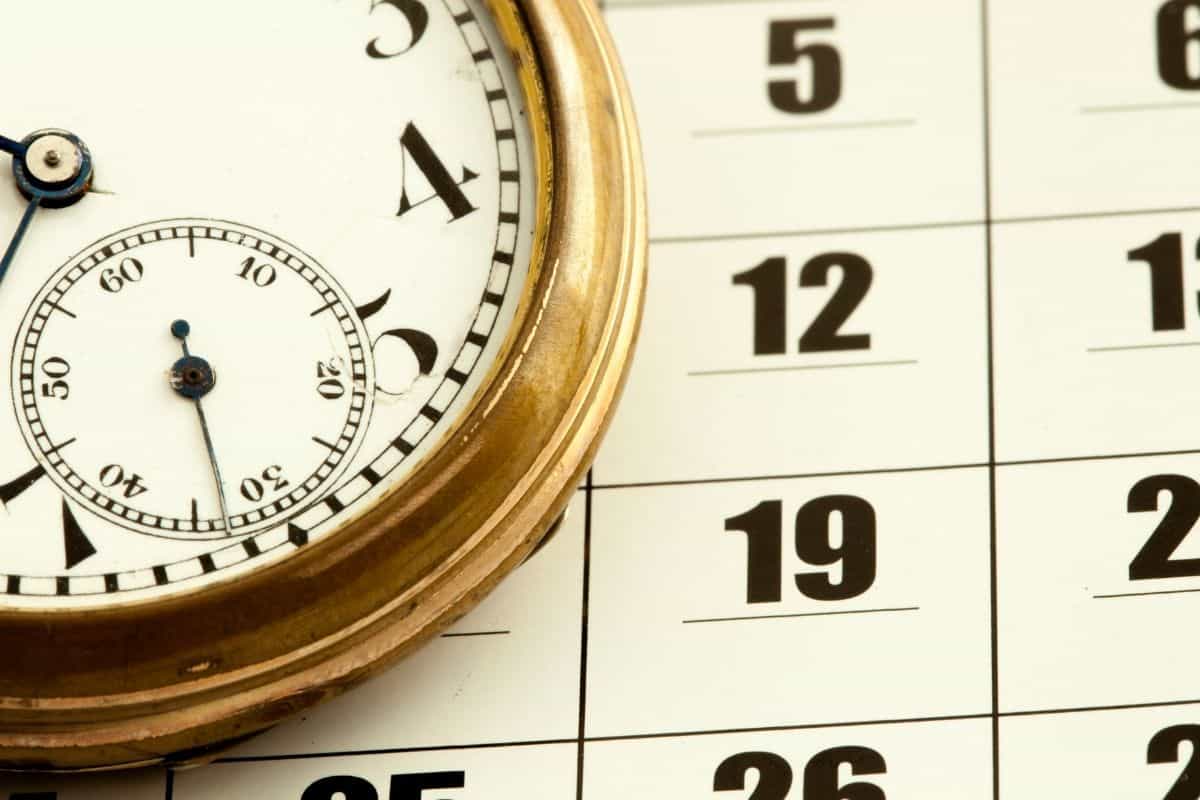Boredom and idle time were my biggest enemies during early recovery. Drug addiction not only takes over your mind and body, but it also consumes your life. Many addicts are lost in the early stages of recovery. Most of my drug-using days were consumed by searching for and using drugs. It was common for 8-9 hours to pass while I was out chasing the high. The whole process of being a heroin addict consists of trying to find money, stealing, calling the dealer (waiting for the dealer), getting a ride, getting the drugs, getting paraphernalia, getting high, avoiding the cops, etc., and repeating multiple times a day. When I got clean I was lost, I didn’t know what to do with my time.
It’s no secret to addicts and non-addicts alike,
“Idle Hands Are The Devil’s Workshop”
– The Living Bible, 197
The Importance of Having a Schedule/Routine During Early Recovery?
Most people in recovery are coming out of rehab, a treatment center, or jail. All of those places have a strict schedule. Keeping a schedule in recovery, especially early recovery, can help minimize triggers that can lead to a relapse. Ineffective time management can cause anxiety, stress, or idle time, all 3 of which can be detrimental to a person in recovery. Having a routine helps to keep the addict accountable and responsible. A set routine helps create a feeling of comfort which the addict never got during their chaotic using days. The benefits of a schedule/routine in early recovery are:
- Create structure in the addict’s life.
- Help with sleep issues (many addicts have insomnia in early recovery, or sleep excessive amounts, as I did) A routine can help addicts get to bed and wake up at a consistent time and be healthy and productive when they do wake up.
- Eliminate Boredom. Boredom is a huge trigger for recovering addicts.
- Create new sober networks – avoid loneliness
- Be more productive. A set routine will help people in early recovery manage their time so they can rebuild their life.
- Helps addicts be more accountable and gain responsibility back.
A certain part of me was addicted to the process of it all. The action, chaos, and disorder can be almost as addicting as the drugs themselves. You may think “what kind of person would want that?”. Just like someone with a gambling addiction, it’s not about the money as much as it’s about the rush. That is the reason why having a set routine without much unpredictability can be very grounding and positive for an addict in recovery.
My Schedule/Routine
Here is my actual schedule/routine for today:

- 7:30 – Feed Dogs/Make Coffee
- 7:45 – Read AA Daily Reflections/Meditate
- 8:00 – Work On Website Article
- 9:00 – Leave For Work
- 9:30 -4:00 – Work
- 4:30 – 6:00 – Workout – Penfield YMCA
- 6:30 – 7:30 – Penfield AA Meeting
- 8:00 – Be Home Before 8
- 8:00 – Grub Some Food
- 8:30 – Shower and Clean Up
- 9:00 – 10:30 – Work On Website
- 10:30 – Call My Sponsor
- 11:00 Crash For The Night
You can make your routine as complex or as simple as you’d like. I keep mine pretty simple. Having this routine helps start my day off with a sense of purpose and certainty. I lived so many years of my life with no schedule, now I actually have peace of mind when I wake up and know what is going on for the day.
A very important piece of my schedule is reading my Daily Reflections and meditating. You can see I give myself 15 minutes every morning to read AA’s daily reflection which is just a few paragraphs to give me some positive sober motivation. Then I meditate for 10-15 minutes. Meditating for 15 minutes first thing in the morning is UNBELIEVABLE CHALLENGING! It has taken me about 3 months to get this set in my schedule and actually do it every day. My mind is racing when I wake up with 100 different thoughts going on, but sitting down for 15 minutes and quieting my mind is freaking awesome!!! I was genuinely shocked at how different my attitude is on days I meditate vs. days I don’t.
The “High” Before The “High”
In my outpatient rehab, a common topic of discussion was the “anticipation” of getting high. Many addicts like myself experience a “high before the high”. I would call ten drug dealers and get no answer or they would be out of supply. After an hour finally one would say meet me here… The whole process of getting in the car and driving to meet them was a huge rush. Usually, at this point, I would be in withdrawal already. I would be sweating, yawning, upset stomach, and aches/pains, but also excited and anxious, someone finally has my fix.
** It’s a weird phenomenon when an addict is in full-blown withdrawal (puking, diarrhea, sweating, flu-like symptoms) just the mention of drugs being on the way can make their symptoms dissipate. A friend of mine I used to get high with would occasionally call me and say he’s on his way over with dope. I would be in the corner of my bed literally crying in pain. As soon as he said he had dope…I would feel 10 times better. I would get out of bed and sit and wait at the door, withdrawal symptoms already started to vanish.**
This whole thrill of unpredictability and disorder is something that needs to be squashed in sobriety. A set schedule can help keep newly sober people’s emotions in check. Early recovery already feels like a roller coaster of emotions, no need to make it worse with chaos, disorder, and unpredictability. Small variations to my day are easy to manage because I know where I am supposed to be. Early sobriety is filled with alien-like feelings and emotions. My anxiety and depression that I Bottled up for years and suppressed with drugs, now came erupting to the surface. If you can eliminate the stress of uncertainty by having a planned schedule/routine, it’s one less thing to worry about.
Replacing The Chaos

I have replaced the drug-using rush with exercise and working out. Rocovery Fitness is a program in Rochester N.Y., that is dedicated to doing fun exercise-type programs for sober people. They go on hikes, kayaking, mountain climbing, yoga, CrossFit, and many other activities. Having some type of positive program like this to replace your need for excitement is essential. Without a set routine I end up skipping out on events at Rocovery because I’m just sitting at home and the time slips away from me. When I mark workouts and events in my calendar, it helps keep me accountable, also it gives me something to be excited about.
Patience Is The Key
It will take time for an addict to be content with this type of “sober rush” vs. The “addiction rush”. Running from drug dealers who you tried to rip off, is obviously gonna be a different rush than hiking in the woods. The key is time. Time is your best friend in sobriety.
Every day that you don’t pick up that drink or drug is one more day your body and mind get stronger. Especially with heroin addicts. All of us drug addicts spent so long filling our brains with foreign chemicals, it natural for our brains to be unbalanced for a while. Addicts in early recovery are going to have a hard time experiencing happiness, this is normal. Our brains need time to reboot so they can start making natural endorphins and serotonin on their own again. That’s why it’s important to treat your mental health as well as your physical health. Having a set schedule/routine will help hold you accountable to make sure you go to all of your appointments.

** If you notice that even with a routine you are deeply depressed or very irritable make sure you talk to someone. These are warning signs of a relapse. You can talk to a medical professional, a counselor, best friend, family member, or sponsor and work on the issues, just don’t pick up a drink or drug. Check out this article on relapse https://soberdogs.com/relapse-warning-signs/.**
One Thing At A Time
If you’re similar to me then you were like a tornado during your addiction, leaving a wake of destruction in your path. When I got sober I was overwhelmed with things I had to repair/fix in my life. Everything from bills, credit report, work, appointments, parole, outpatient rehab, family, relationships, mental health, etc., all needed to be rebuilt. When I tried to look at everything I got extremely overwhelmed, which is not good for people in early recovery. When I broke everything down and tackled one thing at a time, I felt less of a burden and got more done.
I would pick one area of my life (ie. Finances) and incorporate that into my schedule for the week to see what positive things I could do to help repair the damage in that area. The next week I would do the same for another area. Without a schedule or routine to break these tasks down into bite-size chunks it’s almost impossible to rebuild your life.
Your Schedule/Routine
If your an addict or you have a recovering addict coming out of rehab soon the key is to eliminate too much boredom/alone time, but also have your routine be manageable according to what you can handle. Do not think that you have to fill every second of the day forcing yourself to do things you hate. Take your time and create a schedule and routine that is busy enough for you to stay out of the Itty Bitty Shitty Committee in your head, but also allows you to slowly get acclimated back into the real world and your new sober lifestyle.
-“As always remember sobriety does not = misery”
– Kyle – The Soberdog –
Related Questions
I Have A Loved One Coming Out Of Rehab Soon, Should I Make A Whole Schedule For Them Before They Get Out?
I say no. If your loved one gets out and you have a whole detailed routine set up that they did not help create, it might cause some backlash. The person may feel like you are trying to control their life, which usually pushes them further away. Also, you don’t know what shape they will be in, coming out of rehab. I was in withdrawal for roughly 6 weeks. This article details the whole withdrawal process, https://soberdogs.com/heroin-detox-the-first-30-days/ (Physical withdrawal 2 weeks, Psychological withdrawal 6 weeks). You could have a tentative schedule set up with plans for a few days, and suggest it, but don’t force it on them. Encourage positive things, but in the end, no one can keep an addict sober except themselves.
How Can I Find AA Meetings and Other Sober Activities In My Area?
https://www.aa.org/pages/en_US/find-local-aa This site is a great resource for finding meetings in your area. Use the internet and social media. If you type in addiction recovery or sober activities on Google or even on Facebook you will see tons of things, then just narrow it down to wherever you live. If you’re in the Rochester N.Y. area like me you should definitely check out Rocovery Fitness https://rocoveryfitness.org. It has awesome sober activities and a great sober network.
Sources:


